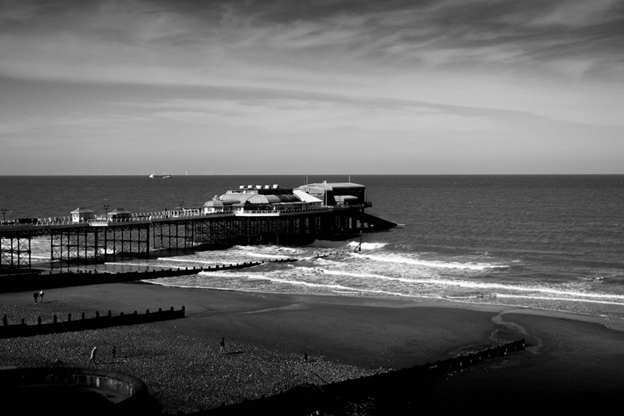UK piers have long been associated with leisure and entertainment, but their potential as educational resources is often overlooked. These coastal structures, extending into the sea, provide unique learning environments for college students across various disciplines. From marine biology to engineering and history, piers offer real-world contexts for academic study, blending outdoor experiences with scholarly pursuits.
In the realm of academic support, essay writing services like DoMyEssay.com are well-known for assisting students with their academic assignments. However, the learning that takes place on piers amidst the natural and historical tapestry of the UK’s coastline offers a different kind of educational enrichment that can complement traditional classroom and online learning resources.
Well-Known UK Piers as Learning Sites
Brighton Pier, Sussex, is not only a popular tourist destination but also a valuable educational resource, offering insights into Victorian architecture and coastal engineering. Its rich history and iconic structure make it an excellent case study for students interested in historical architecture, leisure studies, and coastal resilience.
Similarly, Blackpool Pier in Lancashire provides a glimpse into the Victorian era’s leisure culture, making it a fascinating study subject for tourism management, social history, and cultural studies. It reflects the evolution of British seaside resorts and their socio-economic impact.
Southend Pier in Essex, which is noted as the world’s longest pleasure pier, is ideal for studying coastal geography, marine ecosystems, and the engineering challenges of maintaining such extensive structures in a marine environment, providing practical learning opportunities for students in environmental science and civil engineering.
Academic Assignments and Coastal Environments
Piers provide a dynamic backdrop for various academic assignments, offering real-world contexts for theoretical knowledge. Students studying marine biology at these coastal sites can observe and analyze marine life and ecosystems firsthand, conducting field research that complements their classroom learning.
Engineering students might explore the structural design, materials, and sustainability of these coastal infrastructures, analyzing how they withstand marine conditions.
Additionally, history and sociology students can delve into the piers’ roles in the social and economic development of seaside towns, examining their transformation over time and their impact on local communities and tourism trends.
Learning Beyond the Classroom
Field trips to these piers can significantly enhance the learning experience, allowing students to engage directly with their study subjects. This hands-on approach not only enriches their understanding but also adds practical relevance to their academic coursework. Beyond the theoretical aspects, such visits encourage students to interact with the environment, engage in critical thinking, and apply their knowledge in real-world settings. This experiential learning method helps bridge the gap between textbook theories and practical application, making the educational process more engaging and effective.
Integrating Pier Studies into College Curricula
Incorporating visits to UK piers into college syllabi can offer students a multidisciplinary learning experience, enriching their educational journey. These visits can be tied to specific modules, with assignments and projects designed around the resources and observations gleaned from the piers. For instance, a biology project might involve studying the biodiversity around the pier area, while a history essay could focus on the evolution of piers and their impact on coastal communities. This integration can facilitate a comprehensive understanding of subjects, encouraging students to consider various perspectives and interdisciplinary connections.
Enhancing Student Engagement
Real-world learning environments like piers can significantly increase student engagement and motivation. The novelty of studying in an outdoor, historical setting can reinvigorate students’ interest in their subjects and enhance their academic performance. It offers a break from traditional classroom settings, stimulating curiosity and enthusiasm for learning. This practical exposure allows students to see the direct implications and applications of their studies, fostering a deeper appreciation and understanding of their field.
The Impact on Student Development
Learning in such unique environments can foster a greater sense of community among students, encourage collaborative learning, and develop a deeper connection with their field of study. It promotes critical thinking, problem-solving, and observational skills, which are invaluable in academic and professional settings. This experiential learning strengthens students’ abilities to analyze, reflect, and act upon their observations, preparing them for future challenges in their careers.
Preparing for the Future
The practical knowledge and experience gained from studying at UK piers can provide students with a competitive edge in the job market. It equips them with unique insights and skills that are highly valued across various industries, from environmental science to heritage management. This hands-on experience not only enhances their academic credentials but also prepares them for real-world challenges, fostering adaptability and innovation in their professional endeavors.
Conclusion
Incorporating fieldwork at UK piers into college curricula bridges the gap between theoretical knowledge and practical application, enriching students’ educational experiences. These piers, with their rich historical and ecological narratives, serve as dynamic classrooms that encourage active learning and critical thinking. Such hands-on experience not only deepens students’ understanding of their subjects but also equips them with practical skills and insights, highlighting the value of innovative research methods for college essays and academic studies. This approach fosters a more engaging and comprehensive learning environment, preparing students for the complexities of their future careers.
Author bio
Freelance writer Nicole Hardy, a distinguished journalist in the realms of education and the arts, is celebrated for her thorough and discerning coverage of performing arts education. Her career, which extends beyond ten years, has solidified her status as an authoritative figure in this domain. Hardy is praised for her thorough analyses and captivating writing manner. She earned her Master’s in Journalism from the University of Arts, with a focus on arts and culture journalism.











